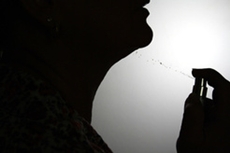Scientists develop formula for a biologically effective perfume
05 Feb 2013
Individual body odour plays an important role in partner selection. Humans, mice, fish and birds, and probably other vertebrates too, receive important information about a potential partner's immune system from their body odour. A partner is chosen on the basis of whether he or she complements an individual's own immune genes.
 |
| Researchers believe that not only the perception of body odour, but also of perfumes, play a role in sexual communication. After all, humans have been using perfumes for more than 5,000 years. © pixelio.de |
The aim is to pass on a wide variety of immune genes to the offspring so that they are resistant to a broad spectrum of pathogens. Although several hundred different forms of the immune genes exist in humans, individuals only have a few variants which co-determine their typical body odour, their individual ''scent''.
Scientists from three German institutions - Max Planck Institute of Immunobiology and Epigenetics in Freiburg, Max Planck Institute for Evolutionary Biology in Plön, together with colleagues from the University of Dresden Medical School - have succeeded in explaining the chemical nature of this individual scent, synthesised it and tested its effectiveness on test persons. The results show how perfumes that are completely effective biologically can be produced synthetically without resorting to animal products.
As far back as the 1990s, the Research Group working with Manfred Milinski, now director at the Max Planck Institute for Evolutionary Biology in Plön, discovered, through the use of so-called t-shirt experiments, that women prefer the smell of men who have different immune gene variants than they themselves have.
''We are unconsciously aware of how our own immune system is constituted and can recognise that of a potential partner from their smell,'' explains Milinski. In further experiments, the researchers were able to show that these immune variants also determine which natural ingredients both women and men prefer in the perfumes they use.
Since time immemorial, people have been very selective when it comes to choosing perfumes. They take a long time to find one and tend to stick with their choice for many years. A perfume is selected so that it will intensify the individual's own immunogenetic olfactory signal. ''If it would mask or alter the natural signal, selection would have spoiled the fun of using perfume long ago,'' explains the evolutionary biologist


















